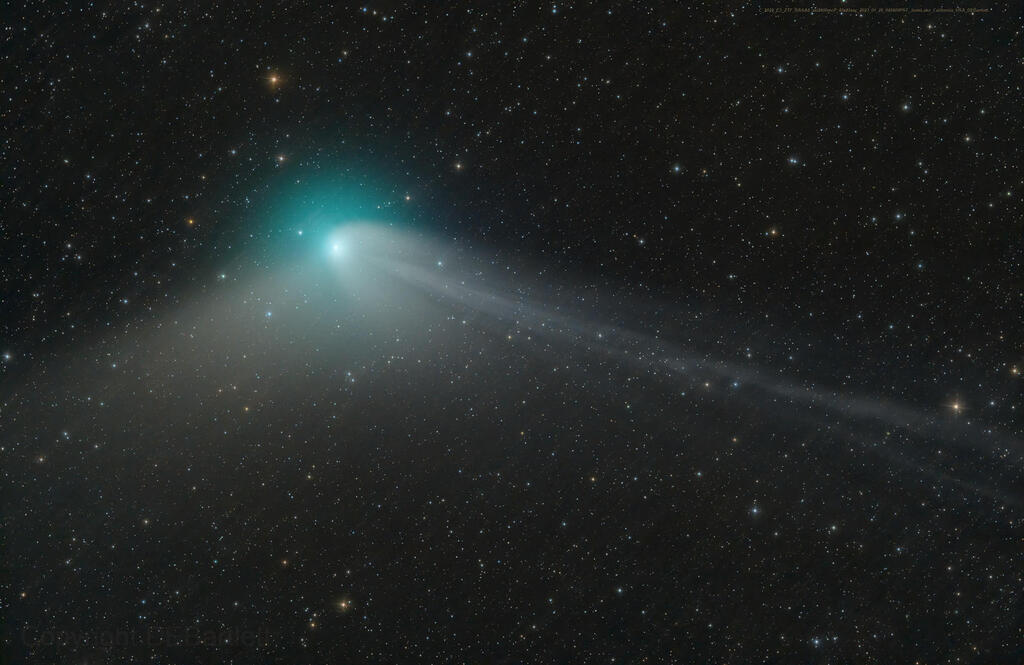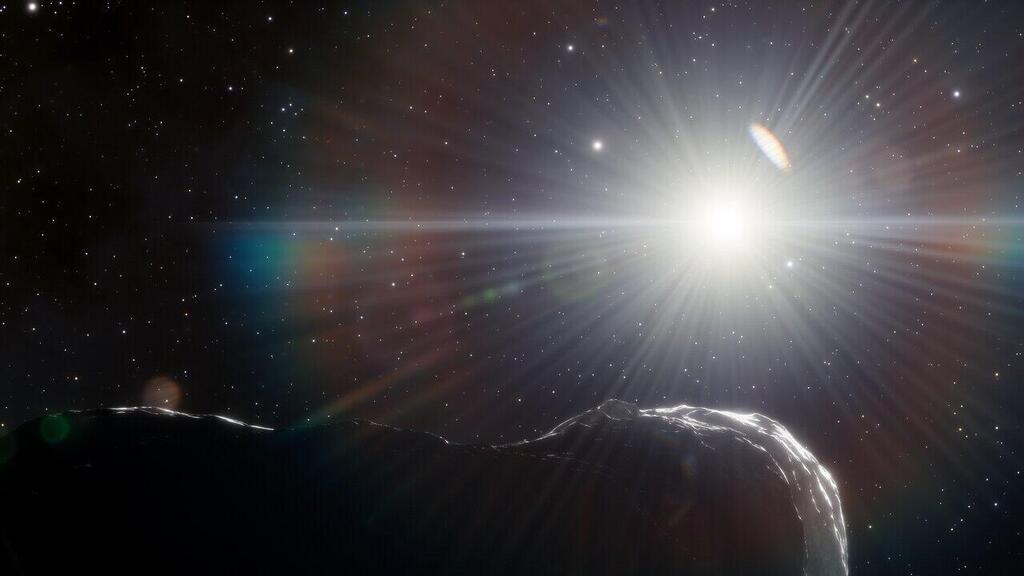If you're a stargazer at heart, you might want to leave the city, settle in an open field and look up to the night skies. For the next two days, comet C/2022 E3, which hasn't come by Earth in nearly 50,000 years, will be passing by our planet.
Originally discovered in March 2022 when it was 643 million Kilometers away from Earth, researchers first thought it to be an asteroid.
In a Ynet studio interview, Dr. Yigal Pat-El, the former chairman of the Israeli Astronomical Association, said: "It's best viewed today, tomorrow and the day after that, weather permitting. It's located pretty high up, next to the northern star. It's on the edge of our solar system, which is why it's so interesting," he says.
"The comet is visible all throughout the night. There are mobile apps that can help with locating it. In a few days, it'll move really close to Mars, but will be barely visible by then. For the most optimal experience, you want to be outside the city when watching, since city lights would make it substantially more difficult to spot, and that's on top of the light emitted by the Moon, which will further dampen the view."
Dr. Pat-El says C/2022 E3 is just one of around 20 comets to pass by our Sun this year, some to never be seen again.
"What's unique about this one is its proximity to Earth, which will make it visible to the naked eye," he adds.
"Comets often orbit the Sun for millions of years, which isn't rare, and the visible ones are the most exciting, but most remain out of sight even with a telescope.
We can't tell if this comet will come by again in our lifetime, or at all. The Sun's radiation, as well as its own residual energy, could knock it off course, rendering it invisible to us in the future."



